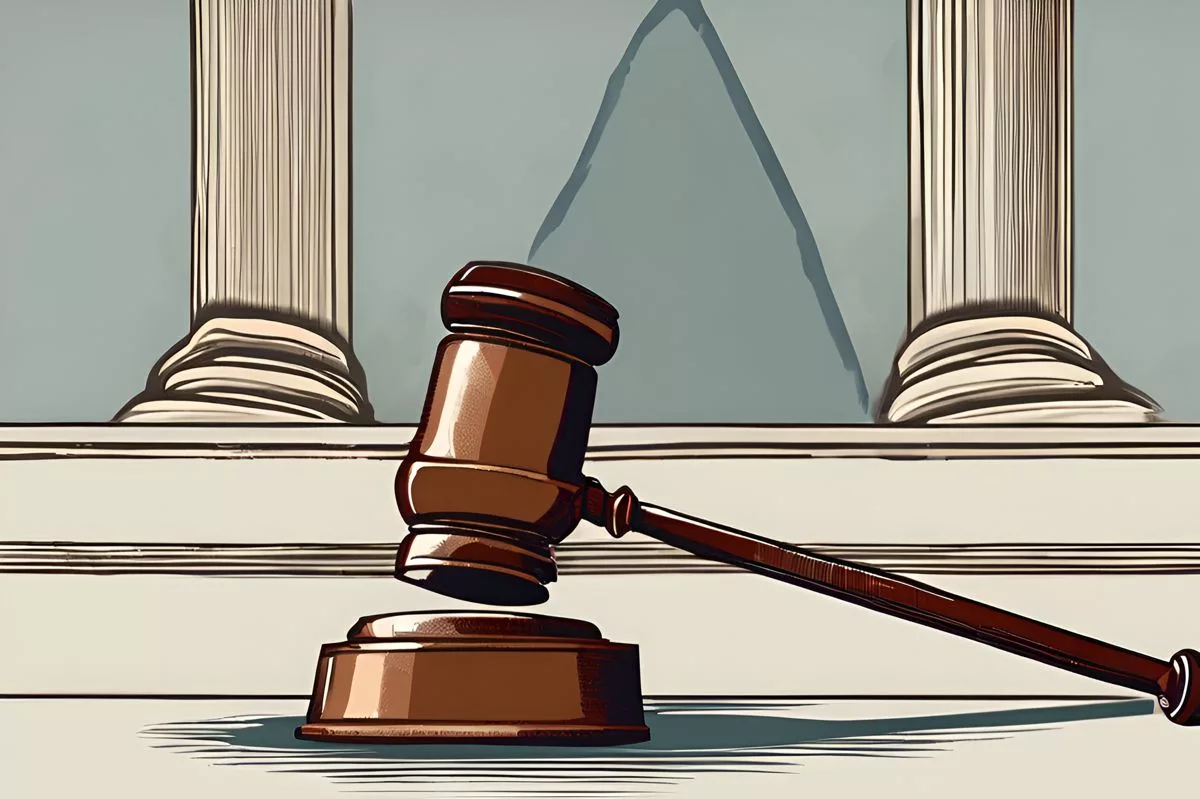In a historic decision, Judges John Hlophe and Nkola Motata were dismissed from their judicial roles in South Africa due to gross misconduct. The decision was made by the National Assembly following the Judicial Service Commission’s findings. The dismissal showcases South Africa’s commitment to upholding justice and highlights the accountability mechanisms within the country’s judiciary. The process leading to the decision was lengthy and involved various bodies, demonstrating the regulation and rule of law in the country.
A Game-Changing Decision in South Africa’s Judicial System
In a historic decision, Judges John Hlophe and Nkola Motata were dismissed from their judicial roles due to gross misconduct, as determined by the Judicial Service Commission. The National Assembly had the responsibility of deciding whether to dismiss the judges, as outlined in Section 177 of the Constitution. This decision showcases the accountability mechanisms within South Africa’s judiciary and emphasizes the country’s commitment to upholding justice.
A Unanimous Decision
In a momentous event on February 21st, 2024, the National Assembly of South Africa, in unison with the Portfolio Committee on Justice and Correctional Services, made a groundbreaking decision that could alter the country’s judiciary’s political landscape. The consequential action was to dismiss Judges John Hlophe and Nkola Motata from their judicial roles, a decision that reverberated through the country’s judicial system.
The resolution of the National Assembly was heavily influenced by the Judicial Service Commission (JSC)‘s findings. This body, primarily tasked with supervising judicial conduct and the accountability of judicial officers, had declared Judge President Hlophe guilty of trying to influence two Constitutional Court Justices, a violation of their oath of office. This misconduct was traced back to 2008, when Hlophe was accused of attempting to influence the court’s decision on the Thint/Zuma matters, a notorious case involving former President Jacob Zuma. Meanwhile, retired Judge Motata was declared guilty of severe misconduct following his drunk driving conviction in 2009.
Regulation and the Rule of Law
To comprehend the decisions and processes that led to this outcome, one must understand the JSC Act. This governing statute outlines the procedures to be implemented when a complaint against a judicial officer arises. It categorizes offenses into three broad categories: impeachable offenses, serious non-impeachable offenses, and minor offenses. According to the act, impeachable offenses are those involving incapacity, gross incompetence, or gross misconduct by a judicial officer.
The Constitution’s Section 177 is crucial in outlining the roles and responsibilities of the JSC and the National Assembly in the process of dismissing a judge. The JSC, as per Section 177(1)(a), has the power to determine whether a judge is guilty of gross misconduct. Meanwhile, the National Assembly, under Section 177(1)(b), has the responsibility of deciding whether a judge found guilty of gross misconduct should be dismissed.
The Lengthy Process
The process of reaching this point was not swift. Years of delays caused by various litigation necessitated the Chief Justice to appoint a Judicial Conduct Tribunal (JCT) to investigate the complaint as stipulated by Section 21 of the Judicial Service Commission Act. The JCT found that Judge Hlophe’s conduct violated Section 165 of the Constitution and that his actions endangered the Constitutional Court’s independence, impartiality, dignity, and effectiveness and jeopardized public trust in the judicial system.
After the JCT’s report and ensuing submissions from all parties involved, the JSC affirmed the Tribunal’s conclusion of Hlophe’s severe misconduct, as laid out in Section 177 of the Constitution.
The JCT found Judge Motata guilty of gross misconduct and advised the JSC to invoke Section 177(1)(a) of the Constitution. This section stipulates that a judge can only be discharged if found incapacitated, grossly incompetent, or guilty of gross misconduct.
The Final Verdict
After reviewing all documents and presentations from Judges Hlophe and Motata, the Portfolio Committee on Justice and Correctional Services suggested both judges’ dismissal from judicial office. This proposal was supported by a majority within the committee and was subsequently submitted to the National Assembly.
Eventually, the National Assembly, following a vote, concurred to discharge both judges from their roles. A total of 305 members supported Judge Hlophe’s dismissal, and 296 members supported Judge Motata’s dismissal, with one member voting against and thirteen abstaining.
The decision to remove the two judges will now be submitted to the President, solidifying this significant development within the South African judicial system. This situation highlights the mechanisms of accountability within the judiciary, reflecting the strength of South African democracy and its dedication to maintaining justice.
1. Why were Judges John Hlophe and Nkola Motata dismissed from their judicial roles in South Africa?
They were dismissed due to gross misconduct as determined by the Judicial Service Commission.
2. What is the Judicial Service Commission, and what is its role in the decision?
The Judicial Service Commission is primarily tasked with supervising judicial conduct and the accountability of judicial officers. It was responsible for determining the guilt of the judges and making recommendations to the National Assembly.
3. What is Section 177 of the Constitution, and how is it relevant to the dismissal of the judges?
Section 177 outlines the roles and responsibilities of the JSC and the National Assembly in the process of dismissing a judge. The JSC determines guilt, and the National Assembly decides whether to dismiss a judge found guilty of gross misconduct.
4. How long was the process leading to the decision to dismiss the judges?
The process leading to the decision was lengthy and involved various bodies, including litigation and investigation by a Judicial Conduct Tribunal. The process spanned several years.
5. What was the Portfolio Committee on Justice and Correctional Services, and what role did it play in the decision?
The Portfolio Committee on Justice and Correctional Services was responsible for suggesting the dismissal of the judges. It supported the recommendation made by the JSC and made the proposal to the National Assembly.
6. What does the dismissal of the judges showcase about the South African judicial system?
The dismissal showcases South Africa’s commitment to upholding justice and highlights the accountability mechanisms within the country’s judiciary. The process leading to the decision demonstrates the regulation and rule of law in the country. It reflects the strength of South African democracy and its dedication to maintaining justice.












